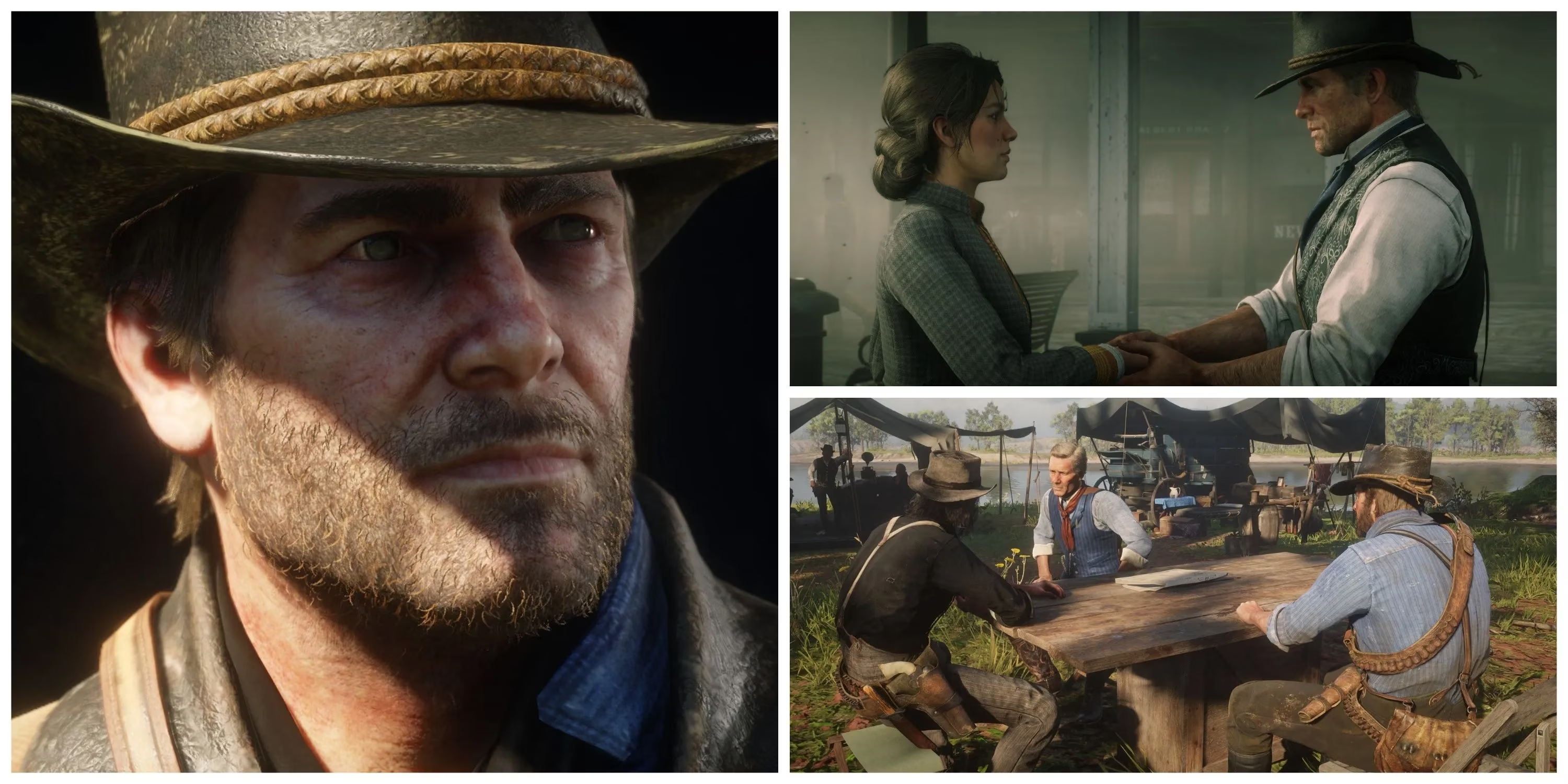In the rugged landscapes of 1899 America, Arthur Morgan stands as one of gaming's most layered protagonists—a man wrestling with his demons while clinging to shreds of inherent goodness. Despite his outlaw life with the Van der Linde gang, Arthur's path reveals glimmers of compassion that blossom into full redemption. Years after Red Dead Redemption 2's release, players in 2025 still dissect his moral complexity, finding timeless resonance in his struggle against a changing world that brands him a criminal. Through selfless acts and quiet sacrifices, this gunslinger proves that even in the darkest soil, humanity can take root and flourish. 🕊️

🤝 Helping Strangers Unconditionally
Across five states, Arthur repeatedly aids strangers purely out of kindness—no gold or glory expected. He rescues photographer Albert Mason from charging bears 🐻, teaches widowed Charlotte Balfour wilderness survival, and bonds with veteran Hamish Sinclair over his beloved horse. These aren't transactions but genuine connections. People often wonder why Arthur prioritizes others' needs amid his own chaos. The answer lies in his core identity: beneath the gruff exterior beats a heart rejecting cynicism.
💔 Unwavering Devotion to Mary Linton
Arthur's tragic romance with Mary Linton reveals his loyalty beyond the gang. Even after their painful separation, he helps her troubled brother and ailing father—gaining nothing yet honoring their history. Their star-crossed dynamic shows Arthur's capacity for selfless love, where he sees himself as "a fool" but acts anyway. This emotional vulnerability contrasts sharply with his outlaw persona.
✊ Defending the Marginalized Against Prejudice
In Lemoyne's racist underbelly, Arthur fiercely protects gang members like Charles, Javier, and Lenny. He disrupts KKK rallies 🔥, confronts former slave catchers, and berates bigots—actions never penalizing his honor. For Arthur, justice isn't passive; it's fists and bullets against oppression. His solidarity with persecuted communities underscores a moral code transcending 1899's prejudices.
💰 Generosity to the Vulnerable
While loan shark Strauss exploits the poor, Arthur gives freely—donating to beggars, funding Mickey the "veteran" in Valentine, and reminiscing about the gang's Robin Hood past. These aren't grand gestures but quiet rebellions against greed. Players frequently ask how Arthur maintains empathy in a cruel world. His small charities answer: by seeing shared struggle in every face.
🙋♀️ Championing Women's Rights
Amid rampant misogyny, Arthur aids suffragette Dorothea Wicklow in Saint Denis—shouting down her harassers. He rescues kidnapped women across states, not viewing them as weak but fighting systemic cruelty. Though claiming indifference to "women's suffrage," his actions reveal deep respect for their autonomy and safety in a society denying both.
🏥 Debt Absolution & Redemption
After his tuberculosis diagnosis, Arthur dismantles Strauss' predatory loans—freeing debtors from ruin. Kicking Strauss from camp symbolizes his rebirth: choosing mercy over exploitation. This pivotal turn asks, Can a dying man redeem a lifetime of sins? Arthur answers through radical accountability.
🏞️ Aiding Rains Fall's Resistance
Arthur allies with Native elder Rains Fall against U.S. Army persecution—gaining nothing but cultural wisdom. While Dutch manipulates the tribe for war, Arthur seeks peace. This respect for Indigenous sovereignty, amid genocidal policies, marks his moral awakening.
🎖️ The Ultimate Sacrifice for John Marston
At Beaver Hollow's climax, high-honor Arthur ignores Dutch's money to save John—ensuring his "brother" escapes to family. Choosing death over gold, he transforms from outlaw to legend. His final breath gifts John the future he’d lost.
Legacy of a Flawed Saint
Arthur Morgan remains immortalized not for perfection but for battling his darkness with startling grace. In 2025, gamers still debate: Was he a villain, hero, or both? Perhaps he's simply human—proving redemption isn't about erasing stains but choosing light before the end.
❓ People Also Ask: Arthur Morgan FAQ
| Question | Answer |
|---|---|
| Why does Arthur help strangers despite his outlaw life? | His actions reveal an innate kindness conflicting with his role—proving goodness persists even in violence. |
| How does Arthur's illness change him? | Tuberculosis forces introspection, accelerating his redemption through selfless acts. |
| Did Arthur truly love Mary Linton? | Yes—their letters and his aid to her family show enduring, painful devotion. |
| Why is Arthur's defense of minorities significant? | In 1899's bigotry, his allyship was radically empathetic, challenging era norms. |
| What makes Arthur's sacrifice for John impactful? | It completes his arc: choosing familial love over wealth or survival. |